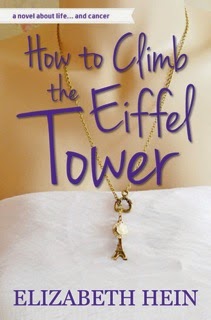Last week WiDo Publishing's managing editor, Karen Gowen, busted some myths for us about small publishers. Check out the helpful interview here.
For many authors, small publishers are the perfect option. Perhaps an author doesn't want to work with a literary agent (not always necessary with a small pub), or pursue one of the Big 5. Maybe they don't want to go indie, or they want to be a hybrid author. If writers are looking for a publishing partner with a personal touch, small publishers can be a great way to pursue a traditional path.
But many authors haven't considered this option, or don't even know where to start. I haven't personally published with a small press, but my friends who've gone with small publishers have enjoyed their experiences. I've considered it and done a lot of research.
So how do you know which small publishers to pursue, and how do you know they'll be with you for the long haul? Hopefully this guide will help you.
1) Find out who they are.
- If you write for children or teens, I highly recommend subscribing to Children's Writer Newsletter. It's $15 per year but worth every penny. Each issue has excellent articles about the writing craft. It lists publisher's names--the biggies and the small--along with editor names. There are SO many reputable publishers out there that many authors haven't heard of. Plus, they list publishers that might cater to niche markets. Niche markets might be a perfect place for your book.
- Visit Agent Query for their long list of small presses.
- Find the publisher's name of the books you're reading. It's possible it's a small publisher.
- Since you're reading this blog, it's likely you're a blogger. Many of our author friends, like Anne R. Allen and Alex J. Cavanaugh, have worked well with small presses. Start keeping a list of publishers you've heard about in the blogging community, especially those that match the genre you write in.
- Google it. Run a search such as small presses for YA books, etc. See what pops up. Add more names to your list.
2) Research, research, research.
- Visit their web site. Are they still in business? If so, how long have they been in business? Does the site look professional? Does it seem as if your manuscript would fit well with their list? Are their covers eye-catching?
- Check them out on Preditors and Editors. Most presses are listed there, along with comments such as vanity press, recommended, not recommended, etc.
- Search for the publisher's name in the Absolute Write forums. What are other authors saying about them? If there's negative chatter, make sure it's legit and not just bitterness being splashed on the web.
- Contact the small publisher's authors. Most sites will list the books they've published. Google the author's name and send them a message via their contact page. Ask about their overall experience with the publisher. Was the publisher fair? Was the author allowed any creative input? Did the small press pay royalties when promised?
3) Submit.
- Check each publisher's web site for their submission guidelines.
- Follow those guidelines exactly.
- Keep a log of your submissions. My submissions tracking sheets listed the date of submission, the publishing company, the editor's name, what I sent them (according to their guidelines), and a spot for results.
Once you've found the perfect small press, researched the heck out of them, and submitted your work, the best advice is to...you guessed it, write the next book!
Friends, have you submitted to small presses? Published with one? Any advice you'd like to add? Please share!












